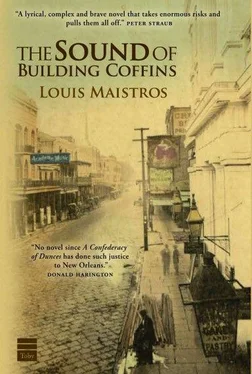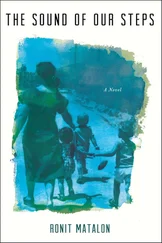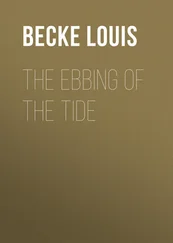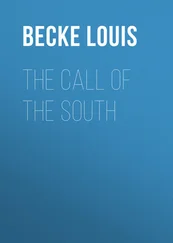The sailor’s grip on her throat didn’t loosen right off, had even tightened some as the knife dug in, as Diphtheria cranked the handle back and forth, tearing at the sailor from between and beneath thick ribs. His cold look of confidence had slowly yielded to fear as his insides ripped and mingled, and she felt him go limp inside her before any meaningful biological transaction could be completed. As crimson and black spread from between his shoulders to touch warm air, the color crept from his face. Still, his grip failed to loosen-and Diphtheria’s mind went black once more.
In time she awoke, the sailor cold and motionless, his weight a vast, dead stone across her body. With much effort she rolled him off of and out of her-wedging his naked bulk between wall and mattress edge. Sat at the foot of the bed, thinking. Not crying, not afraid, not proud, not feeling lucky to be alive-not feeling much of anything. Just thinking.
The sailor was still bleeding and therefore not yet dead, but she decided it would be best not to interrupt the dying process. She waited for the blood to quit its shimmering trickle, waited for its metamorphosis from shiny motion to shiny stillness. Watched him die there on the bed, watched the bright red life vacate his body and ruin her only mattress. When she was sure his life was done, she walked out slow and knocked hard on the door of her neighbor and crib colleague, Hattie Covington.
Diphtheria’s pounding had caught Hattie in mid-trick. Upon opening the door Hattie looked mighty perturbed-until she saw the blood on Diphtheria’s skimpy fuck-me-silly-in-my-crib-for-pocket-change dressing gown. Hattie’s john had jumped up from the bed; riled as hell, buck naked, swinging his fists in the air and ready to let loose-when he too noted the bright red. Got quiet all the sudden-then got his pants on in a big hurry. Left a whole dollar on Hattie’s washstand before leaving.
Hattie fetched Oscar. Oscar erased the night. Erased all but the remembering.
She had killed the sailor during her fifth year working that Marais Street crib. And so five years in the cribs had added up to that. A series of close calls, a long train ride called misery, and a pitiful, endless stream of dirty crib-nickels.
But in late 1896, before that fifth year was done, everything changed.
Buddy’s band got booked out of Charley’s Barbershop on South Rampart Street and into John the Greek’s on 28 Franklin-right across the street from The Big 25, one of the most popular mid-priced sporting houses in the tenderloin. It was a good, solid gig that paid regular paper money-and Buddy’s strange, super-loud way of playing had become a stone sensation. Then, as if to confirm the good omen of Buddy’s big break, a miracle happened. Diphtheria got herself in a family way.
Buddy’s first reaction to the notion of fatherhood was purest joy, but at the age of only nineteen there was plenty of room for waffling. As the idea sank in and Diphtheria’s belly grew, Buddy’s mind went wobbly and his eyes began to ricochet, returning the flirtatious glances given him by the almost-high-class whores of John the Greek’s; pretty gals, nigh high-yella, who bought him shots of Raleigh Rye and fought to hold his coat.
Soon Buddy did the inevitable and convenient thing, doubting out loud whether Diphtheria’s child might be his own. This was understandable on a certain level-considering how she’d made her living for the past five years-but hadn’t there been love and promises between them? Hadn’t she stayed faithful to him (in her way) for all that time, five years in the crib? Didn’t he owe her child a father and a good life-even a trick baby, if that’s what it was, now that the good life had finally showed the crown of its head?
Diphtheria quit crib-whorin’ just as soon as that baby stole her figure away, but she couldn’t help but wonder if having that baby was the best thing to do. And she wondered what God might think of such thoughts, these thoughts of Doctor Jack and his cure.
When the pregnancy did end, Buddy disappeared entirely. But even without him, she’d managed to make it up from the crib on her own steam. By age twenty-five, she’d made it to the big time, a featured girl on Basin. And now, at twenty-nine, she had a regular customer base, a Blue Book listing of her own, and ten pairs of six-dollar stockings.
Still, she wondered if she’d made the right decision about Doctor Jack and his cure, that decision she’d made back when times were so hard.
“Goddamn shoes.”
Malvina Latour loved her sister with all of her heart, but after more than a half century of living together she’d still not gotten use to Frances’ habit of leaving shoes strewn about the floor. Frances’ typical response to her sister’s grumbling was nothing like an answer, but something like a question.
“Mother? Where my little Maria at?”
And so it went.
When their own mother died from cholera with Frances less than a year old, Malvina had found herself in the role of mother for the first time at age twelve. Frances had always called Malvina that, “mother”-it had been her first word.
Raised Roman Catholic, Malvina turned away from her parents’ God by age twenty. By the time she hit thirty she was a full-fledged mambo in the Vodou religion. And when you are a mambo, you are a mother to many.
Now, at age ninety-nine, Malvina found herself still mothering Frances, now eighty-seven. Their relationship had turned bitter long ago, but neither ever considered leaving the other.
Frances’ eternal response to her sister’s ire (nothing like an answer, something like a question) was regarding this: In 1853 (fifty-three years previously), Frances’ teenage daughter and only child had died during the worst yellow fever epidemic the city had ever seen. Maria’s death had placed a pain in Frances’ heart, the kind that stays long term. She gave her soul over to pain and resentment then-and never let go.
For her own reasons, Frances had blamed her sister for the tragedy. Or so it seemed.
For her own reasons, Malvina blamed herself as well. And so it was, in fifty-three years, not a single word had passed between the sisters. Which isn’t to say there’d been no talking.
“Shoes.”
“Maria?”
Frances talked to herself. And Malvina talked to her self. Always for the other’s benefit, but in no way acknowledging the other’s presence. Not directly. Talking under breath, between teeth. Sometimes whispered, sometimes howled.
Frances refused to look Malvina directly in the eye, but Malvina often looked into Frances’-and in those eyes she saw the baby she’d once raised. Remembered feeding Frances warm goat’s milk, calming away tiny tears and goosing laughter from that frowning little mouth with funny sounds, impressions of swamp frogs and crickets. Remembered how that little baby would crawl up on her lap as she sat in their dead mother’s big oak rocker, would speak in the wonderful fragmented language of babies, pleading for a song. “ Chanson tanpri, Mer .”
“Song please, Mother.”
Such sweet memories. Malvina kept these vivid in her mind and close to her heart, always, always.
And she would sing:
Mo pap li couri la riviere,
Mo maman li couri peche crab
Dodo, mo fille, crab dans calalou
Dodo, mo fille, crab dans calalou
Which translated approximately to:
My papa has gone to the river,
My mamma has gone to catch crab,
Sleep, my daughter, crab is in the river
Sleep, my daughter, crab is in the river
The daily penance paid by Malvina for the last half century, the penance of her sister’s eyes, had succeeded (somewhat) in soothing her own sense of guilt. But even so, what was done could never be undone, and so she’d wondered. Could she have done more to save her sister’s child? She wasn’t exactly sure. In any case, she knew Maria had not died from yellow fever as she’d led Frances to believe. The truth was something she’d protected her fille from. The truth, she believed, would have killed Frances.
Читать дальше












